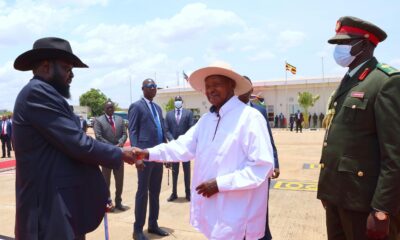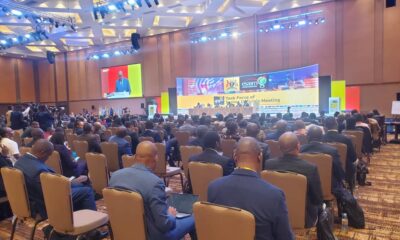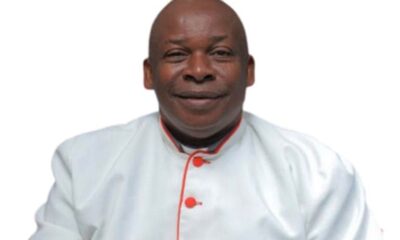Ramathan Ggoobi
Indiscipline killing Makerere
Close Makerere for a year, rewrite its rules and end strikes
Mr. President, and ask everyone (students, lecturers, and all) to reapply and sign an oath
Julius Nyerere, late Tanzanian president, once said, “The folly of so many educated people is that they equate knowledge they acquired from school with being employed rather than sensitize their fellow under-privileged human beings with the knowledge they have so that they become better citizens mentally, socially, morally and materially.”
Nyerere was a trained teacher and from what I have heard and read about him, undoubtedly he was a wise man. I used to think that all educated people are wise, until I got in closer proximity of some very highly educated people whose actions border quite afar from the fringes of wisdom. Some are very clever but definitely not wise.
Look at what is happening, nearly every single semester, every single year, at places where some of the most highly educated people and indisputably clever brains congregate! How can highly educated people make it a preoccupation to cause chaos every single year!
In the years gone by, universities were treated with respect, reverence, and dignity befitting serious minds engaged in intellectual adventure, discovery, and reflection. Muna Ndulo, a renowned Zambian law professor, once said, “The university is supposed to be a birth place of fresh insight, vision, and an arena where fundamental ideas are pronounced, challenged, clarified, and disputed in the most dignified and collegial manner.”
Before society became this big movie screen we are watching every day, a university was calm, ascetic, and secluded to allow minds and ideas to flourish. That traditional image of a university has now been replaced by scenes of a marketplace, albeit an uncontrolled, unregulated and thus chaotic market.
“University of Protests”
Someone may easily succeed in guiding a friend to Makerere or Kyambogo University by referring to either of the two institutions as “University of Protests”. A semester cannot go by without a strike at Makerere or Kyambogo.
We often want to blame the managers of these institutions and/or government for the perennial student and lecturer disquiet at these institutions. But these institutions have had strikes for far too long for anyone serious to continue apportioning the blame to their managers. Generations of managers have come and gone but strikes have persisted.
These students and their professors often cite the usual grievances: high fees, bad food, poor dormitories, bad policies, bad political decisions etc. (for students) or poor pay, bad working conditions, bad management, pension money etc. (for dons).
True, many of these grievances are genuine. However, the issue is whether the students and professors need to (always) express themselves in the manner and intensity observed in Makerere and Kyambogo semester after semester, year after year.
Again granted, most of the university students and staff, just like most leaders in government and indeed the masses in this country, have peasantry backgrounds. But the fact that now they are at these distinguished institutions of intellectuals, they ought to articulate their grievances in a more civilized and less disruptive manner.
Impact seen in bigger society
How can the best brains in our land get conditioned to thinking that the only way to get things done or attract attention to their plight is to protest, break windows, loot property of their innocent neighbours, attack innocent motorists, or boycott classes?
I remember when we were at Makerere for my first degree there was a general feeling of self-importance among students and their professors. We used to think that since we were at the most prestigious university in the country, we ought to be handled with white gloves. I cannot forget the day when fellow students invaded Wandegeya, instituted roadblocks, harassed motorists, looted people’s property, physically abused pedestrians especially women, all in the name of “protesting bad university policies”!
I remember asking one of my friends who participated in the “protests” why they had to go as far as Wandegeya and harass people who had absolutely nothing to do with their grievances. He told me, “This is Makerere. The only place where you do whatever you want and nothing happens to you. I don’t know what you will ever remember about your time at campus.”
This is the attitude; the culture that over the years has been nurtured at Makerere under the watch of leaders in this country. Students at Makerere have come to overestimate their invincibility and the power of collective optimism. They have built a conglomeration of intellectual oligarchy. Some have joined our society with this attitude. Haven’t we seen MPs behave in a similar way on the floor of Parliament?!
Mr. President, although universities the world over are free institutions, in all progressive societies they enjoy that freedom and semi-autonomy responsibly. Even the greatest democracies and free societies have whipped universities in line. In the late 1960s, former U.S. President, Ronald Reagan, while serving as Governor of California, caused the sacking of Professor Clark Kerr, then President of the University of California, Berkeley, accusing him of being “too permissive, or supportive, of the student protests.”
State withdrawal
What we are witnessing in some public universities in this country today is not intellectual diversity and independent criticism. It is pure indiscipline and lawlessness. And because Makerere trains most of the leaders in the country, it should surprise novices when we witnessed the level of lawlessness and indiscipline currently afflicting the bigger society.
In November last year, the Inter University Conference for Peace in East Africa organized a dialogue at Makerere for top universities in Uganda to discuss the problem of strikes. My friend, Dr. Simba Kayumba Ssali, the Head of Department, Political Science and Public Administration, rightly attributed the rising prevalence of strikes in universities to ‘State withdrawal’. Where I didn’t agree with him is the thinking that the State withdrew in the form of reduced funding of public universities.
In my view the State withdrew not by reducing funding but from managing the affairs of the society. Like I often say, there is too little government in this country and too much market. The State must regain its responsibility of monopolizing chaos in this country.
Mr. President, its good you went to the University of Dar es Salaam (UDS). You remember how strikes had messed up this great institution until Mwalimu Julius Nyerere and later his successor, Ali Hassan Mwinyi sorted things out. It is particularly Mwinyi who showed that an active State may at times be needed to sort out things.
In April 1990, students of UDS were involved in protests, just like they had done in the ’70s and ’80s. They wanted government to increase allowances of all public workers to enable them to cope with inflation; to provide better remunerations and working conditions for university workers in order to curb brain drain; to increase prices for agricultural produce for farmers; to improve government accountability and curb corruption; and to increase the education budget.
The students told government that they will not attend classes again until all their demands were met. Academic staff joined the strike in support of the students (not surprising since two of the demands were for their benefit).
Tanzania offers good lessons
On 15th April, 1990, the students’ leaders met with the Vice-Chancellor then, Professor Geoffrey Mmari, and also with President Mwinyi (who had taken over from Nyerere in 1985). The Guild leaders requested Mwinyi to meet with the student community to discuss their concerns. He agreed but instructed them to go back to classes and he would meet them after his return from a trip abroad around 8th or 12th May, 1990.
The students refused to heed the President’s instruction and continued with the strike. On 17th April, 1990, the University Council and Tanzania’s Prime Minister then, Joseph Warioba urged students to obey the President’s instruction to resume classes. They still refused.
Upon his return from the trip to Europe, Mwinyi paid a surprise visit to the university, met with top university administration, and expressed his disappointment with the students for disobeying his instruction. Since the students disobeyed him, he said, he was no longer obliged to meet with them.
Flyers, obscene cartoons and other forms of protest expression started appearing on campus, filled with sexual innuendos and insinuations about the President and his government. The students continued to boycott the lectures and called for the President to resign.
On May 12, 1990, Mwinyi ordered for the closure of the university and sent home all the 3000 students for nearly a year. In his statement, Mwinyi said, “The University which is supposed to be the fountain of learning and the source of wisdom in the land, turned into a citadel of hooliganism, indiscipline, and senseless acts.”
He demanded that all students reapply and take an oath “never again to participate in senseless protests.” Since that time Dar became the university of choice not only for Tanzanians but also for many other people in the region. Today, nearly every serious Ugandan I know wants to go to Dar for their postgraduate education. Makerere has dropped in the pecking order, mainly because the standards have been compromised by endless disruptions from both students and lecturers. To say that indiscipline and lawlessness are killing our great Makerere is one of the understatements of our time.
Comments


























